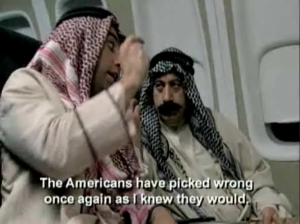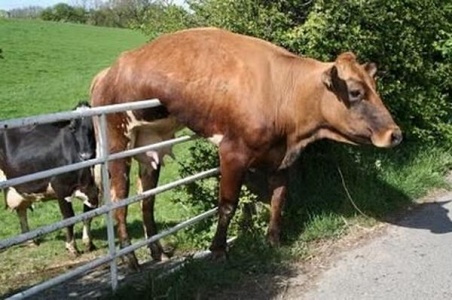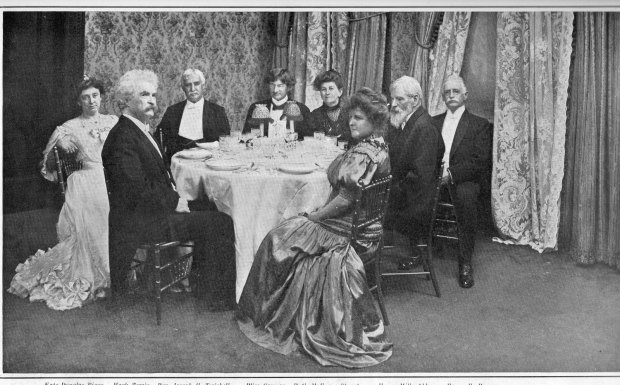A Funny Thing Happened on the Way to America: The Wit of The Beatles
Bodie Plecas
The Beatles were a real good thing for music, because they were funny at the same time – Randy Newman
A hard and rough port town, which offered many dead-ends and few opportunities for upward mobility, Liverpool had humor as the balm that could ease the often crushing burden of reality that was its daily milieu.
Its locals were, and are, famous for their Scouser wit – often delivered in deadpan style; it is sharp and often biting. Verbal jousting is an art form, and generally good-natured. On its dark side, Scouser wit can be a weapon intended to do damage. An overwhelmingly Irish town in the middle of the last century, the locals had some ancestral history with humor.
Even their name for themselves – Liverpudlians – is the Scouser’s inverted joke in which the pool becomes a puddle.
Why does the River Mersey run through Liverpool? Because it doesn’t want to get mugged.
In this puddle fermented with wit, where one was required to have a sharp sense of humor and judged by its quality, were born the Beatles – as individuals and a band. And like the thematic spine that runs through any good story, Scouser wit was the spine of their career – it affected every aspect of their existence as a band, to the point of being responsible for their initial success until their songwriting caught up.
John Lennon’s humor was often underpinned by the dark nature that was part of his personality. Separated from his father, left to live with his aunt by his mother, who subsequently died in a tragic accident, left by the beloved uncle who died unexpectedly, he used humor to cover the pain of abandonment by those he loved. He used it to turn his inner rage on an outside world he felt had betrayed him. Early in school that humor took increasingly sharp turns towards the surreal, and often cruel, in poems, stories, and illustrated magazines he created to communicate with the world outside.
Tragedy struck Paul McCartney as well when he lost his mother in his early teens. Always a people pleaser on the surface, his sense of humor could also be sharp and biting, but was more often obscured under layers of protection. He also came from a large, boisterous, and close knit extended family in which humor, good-natured for the most part, was the currency of affection.
Like his older friend, George Harrison came from a family that was affectionate, loud and immersed in jokes and cut-ups. Falsely referred to as the quiet Beatle, he was a talker, and his wit took a dry, sarcastic tone.
The Reeperbahn, the seedy red-light district of Hamburg where the Beatles had several lengthy stays playing at loud and often dangerous clubs, backing strippers or playing between their sets, was the anvil on which the band was hammered into what was arguably the best live band of Northern England at the time. The lubricant that greased their way through this maze of dangers and endurance was humor.
John, Paul and George quickly found their shared sense of humor helped the intense bond they shared grow. They riffed off of each other like veteran comedians, often finishing each other’s jokes and jabs. Entertaining the jaded and uninterested thugs and blue-collar workers that came to drink at the Kaiserkeller, The Top Ten Club and Star Club, took more than music – it took jokes. Lennon trotted out his well-worn cripple routine, or ridiculed the crowd with Nazi jokes and Hitler imitations. Once amphetamines entered their world, the jokes took on a manic persona and wearing a toilet seat around your head while playing in your underwear was just another tool in their entertainment chest.
It was those personalities, imbued with their unique bond and sense of comic surreality that helped Brian Epstein see their potential. But pushing them on every record label in England came to nothing for the aspiring manager with the passionate belief in his charges. His last hope was George Martin, who headed the poor relative record label Parlophone.
Martin first had success with Beyond the Fringe, a comedic stage review featuring Dudley Moore, Peter Cooke and Jonathan Miller. Those records are considered a key linchpin in the ascendance of satiric humor in Britain.
Happy 88th Birthday to Hal Holbrook.
Tracy Wuster
Today marks the 87th birthday of Hal Holbrook. Hal has performed the character of Mark Twain longer than Samuel Clemens. Much has been written and said about the importance of Mark Twain Tonight! and Hal’s performance as Mark Twain (not to mention his other wonderful acting work).
I want to offer my own story of meeting Mr. Holbrook in Elmira at the 6th International Conference on the State of Mark Twain Studies (which should be renamed, “Mark Twain Summer Camp,” in my humble opinion). For a graduate student, Mark Twain Summer Camp already meant meeting top scholars in the field–rock stars, if you will (if you are a nerd, that is). But Hal Holbrook is as big a star as you will find for Mark Twain fans, unless the man himself were to appear.
I was convinced that my panel would be empty, as it was scheduled opposite…
View original post 619 more words
It’s a bird … it’s a plane … it’s cupid!
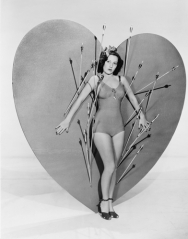 Valentines Day is alive, well and like most American traditions, eclectic and commercialized.
Valentines Day is alive, well and like most American traditions, eclectic and commercialized.
Florists, chocolatiers, lingerie merchants and jewelers are devoted to that chubby cherub and his quiver of arrows. School children are eager to eat cupcakes topped with conversation hearts and stuff die cut cards into decorated shoe boxes. Same sex couples are poised to stage Valentine’s Day protests for marriage rights. Millions of smartphone users are titillated by texts spicy enough to have made great-grandma blush . . . had she been able to decode them.
This ever evolving chaos has been been part of American culture for quite some time, and it’s here to stay. Mass produced greeting cards became popular in the mid-19th century. By the mid-20th century, the tradition had expanded to include gift giving. (Comedian Jay Leno has nicknamed February 14th “Extortion Day.”)
In that spirit of hearts and flowers, I bring you two of my favorite humorous Valentine’s Day poems:
To my Valentine
— by Ogden Nash
More than a catbird hates a cat,
Or a criminal hates a clue,
Or the Axis hates the United States,
That’s how much I love you.I love you more than a duck can swim,
And more than a grapefruit squirts,
I love you more than a gin rummy is a bore,
And more than a toothache hurts.As a shipwrecked sailor hates the sea,
Or a juggler hates a shove,
As a hostess detests unexpected guests,
That’s how much you I love.I love you more than a wasp can sting,
And more than the subway jerks,
I love you as much as a beggar needs a crutch,
And more than a hangnail irks.I swear to you by the stars above,
And below, if such there be,
As the High Court loathes perjurious oathes,
That’s how you’re loved by me.
Litany
— by Billy Collins
Wishing you all you’re wishing for . . . plus a little chocolate . . . on this celebrated day!
Meta-Racist Airplane Jokes: The Foolish Audience and Didactic Humor
What do you call a black man flying an airplane? A pilot, you racist.
It is not complicated, but this meta-joke activates a complex meaning-making process. The setup connotes a genre of racist jokes, inviting the listener to imagine what possible stereotype about black men will fulfill the question in an unexpected way. The answer of “a pilot” is surprising precisely because it is unsurprising. If orthodox racist jokes tend to fulfill psychoanalytic models in their ability to express otherwise forbidden acts of expression, this joke plays more on the surprise theory by inverting dramatic irony to pleasurably expose the listener’s own prejudices and ideally creating some positive self-awareness in the process.
Dramatic irony occurs when the audience knows something a fictional character does not. I read the above joke as an inversion of that particular form because the “audience” for this joke is the one kept in ignorance until the moment of the punchline. Though not necessarily given to social justice for every listener, this joke is ideally didactic in that it makes a pleasurable game of exposing the listener’s prejudices. Neither this form of humor nor its seeming aspirations to a small lesson in social justice are limited to verbal jokes though. To illustrate these points, I turn to an example that uses visual and verbal language to similar ends with relevant contemporary implications.
In 2003, Chappelle’s Show aired a sketch titled “Diversity in First Class.” Although given to left-leaning rhetoric, Chappelle’s Show was not above admissions of prejudice in certain situations. Taking place on a commercial airplane, the camera pans past a pair of men coded as Middle Easterners by their clothing and language. Engaged in a heated discussion, their performance displays aggression in both speech and hand motions. Clearly meant to invoke the image of Islamic terrorists, its original airdate less than 18 months after 9/11 framed its reading in terms of that national trauma. Subtitles further encourage reading the pair as a threat, adding verbal cues to the visual language connoting terrorism. But as the men continue, the subtitles reveal the true nature of their conversation.
By leading his expectations in one direction before dashing them, this contradiction between image and reality makes the viewer foolish. Not only that, but these Others discuss a well-known bit of Western pop culture, making their conversation familiar and laughably non-threatening.
Editor’s Chair: Let’s Destroy the Sun
Tracy Wuster
A friend of mine–and one of my favorite pessimists–has said that she cures writer’s block by placing one simple sentence at the top of her page and going from there. So here goes:
Since the dawn of time, man has yearned to destroy the sun.
There. Maybe that will help…
Nope. I just don’t have anything intelligent to say about humor right now, nothing like Jeffrey Melton’s sharp piece on pedagogy of humor, or Matt Powell’s excellent work on Andy Kaufman’s music, Matthew Duabe’s insightful piece on performance and Princess Ivona, Sharon McCoy’s truly funny meditation on germs in public places, Caroline Zarlengo Sposto’s birthday wishes to that great American poet Muhammed Ali, Phil Scepanski’s insightful discussion of sick humor, or ABE’s solid writing on Marc Maron’s podcast. See, I have resorted to a clip show, the final resort of the lazy sitcom writer (although those are all excellent pieces worth reading, for sure).
But I have nothing. I wish I could turn my external circumstances–which are not really conducive to writing about humor–into humorous insight, as Sharon McCoy has so wonderfully done on our pages. But I can’t. I apologize.
Instead, I will point to the work I have been doing with the AHSA and Humor Studies Caucus of the ASA to plan panels for upcoming conferences in Boston (ALA) and D.C. (ASA). Also, check out the announcements page above or on the AHSA website for new CFPs for the AHSA at MLA 2014, humor studies and Mark Twain at the RMLA, and humor studies at SAMLA.
Also, I blame my book, the manuscript of which is due to the University of Missouri Press at the end of the month. Here is a brief sample, touching on Twain and humor:
In 1874, as Twain was writing the series “Old Times on the Mississippi” for the Atlantic, Howells attempted to ease Twain’s fears about the audience he was writing for, stating in a letter “Don’t write at any supposed Atlantic audience, but yarn it off as into my sympathetic ear.” Twain responded with a line that reflects a sense of relief at this new professional opportunity: “It isn’t the Atlantic audience that distresses me; for it is the only audience that I sit down before in perfect serenity (for the simple reason that it don’t require a ‘humorist’ to paint himself stripèd & stand on his head every fifteen minutes.)”[1] The possibility of earning a living, or at least a reputation, as a new type of humorist—one who didn’t have to curry public favor with constant buffoonery—seems to have appealed to Twain.
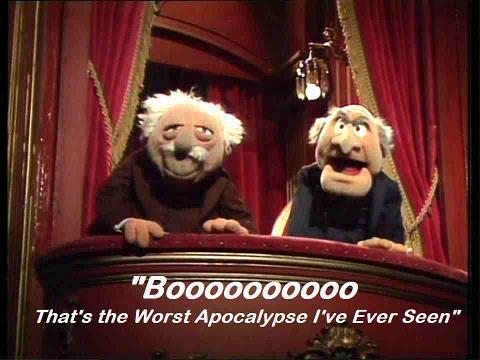
[1] William D. Howells to SLC, 3 December 1874, (UCLC 32073).http://www.marktwainproject.org/x tf/view?docId=letters/UCLC32073.xml;styl e=letter;brand=mtp and SLC to William Dean Howells, 8 Dec 1874, Hartford, Conn. (UCCL 05257). <http://www.marktwainproject.org/xtf/view?docId=letters/UCCL05257.xml;style=letter;brand=mtp>
What is Funny: Using Surveys in Teaching Humor
Teaching American Humor:
What is funny?
I begin all courses on humor by polling students on their tastes. What do they find funny and why? It is a logical beginning from a pedagogical standpoint because it emphasizes the importance of their voice in the class while also asserting a key point of any study of humor: it’s always personal. Students bring an array of predispositions to the humorous material the course will cover. They know what they like, but they may not be so sure as to WHY they like it. We need to use that tension throughout the course. I must also make sure that while they explore their personal preferences that they also find connections to audiences across time and mediums. In short, they need to recognize that the personal responses also have historical, social, and political connections.
A questionnaire assessing students’ tastes in humor could take any number of forms and approaches, and I would love to hear other ideas. I am certain that many teachers do something very similar to what I am sharing here.
Here are the core questions focused on getting students to open up about their tastes:
**Do you have a good sense of humor?
Obviously, the class will respond overwhelmingly in the affirmative. “YES!!” they shout, “WE HAVE A GREAT SENSE OF HUMOR!” This is true, of course, and I congratulate them on this fine accomplishment. It does, however, set me up for obvious jokes as we discuss their answers to the next two questions wherein they provide examples in support of their good senses of humor.
**List two favorite funny films.
**List two favorite television situation comedies.
There is a wide range of answers to these questions, though they lean very heavy to the most recent hits. For example, The Hangover (1 and 2) has been popular for three semesters in a row, though I am certain that run will be gone by next fall–unless two or three more sequels are released this summer. But it is in no way dominant as a favorite. As for sitcoms, The Big Bang Theory and How I Met Your Mother rank high, but, as with the films, there are no real favorites. This list is broad, with most shows getting only one or two votes (out of 35-40 students).
The wide range is the hoped-for response. It gives us an opportunity to mention quite a few films and shows and seek common ground among the varied responses. The more substantive question follows:
**Judging from your favorite films and sitcoms, how would you define or classify your taste in humor?
This is a key moment in the self-assessment. Students cannot just name a recent familiar title; rather, they have to justify it by defining the attributes that lead to laughter. Here is a rather typical range of the phrases they provide:
–Dry, Witty, Intellectual, Sarcastic
–Vulgar, Unnatural, Tasteless, Crude
–Simple, Physical, Stupid
–Realistic; Relatable
The two largest responses are consistently the first two above, and they are generally equally represented even though they seem contradictory. A significant group of students always values wit above all else. An equally large group values crudity above all else. Some students see themselves in both. The inherent tensions between these two seemingly opposite taste preferences is the crux of the course, perhaps, as students explore the cultural values that encourage–demand–both strains in American humor.
The next question gets to important issues related to how we experience humor:
**Which is funniest scenario? Choose one:
1. –A man slips on a banana peel.
2. –A man who is showing off his skills as a dancer slips on a banana peel.
3. –A man who has just been dumped by his girlfriend slips on a banana peel as he walks away.
The battle for supremacy is waged between answers 2 and 3. A Few students will choose number 1 because they hesitate to admit any pleasure in the pain of others. A man slipping on a banana peel is enough–small harm, small chuckle. When you add in an element of hubris, then the humor potential jumps up exponentially. The guy showing off deserves humbling; that is an easy choice to make. An equal number of students, however, will opt for the other guy in number 3, the one they call “the loser.” What does he deserve? Well, that hardly matters; we simply love someone falling down, the further the better. In all cases, of course, we are all simply thankful that we are not the victim of the vagaries of banana peels and their inexplicable powers for being so damned slippery. It’s a cold world.
The final question ascertaining students’ taste in humor is the easiest one.
**Which is the funnier scenario? Choose one:
–a group of cows
–a group of sheep
Everybody knows that cows are funnier than sheep. Everybody.
Happy Mark Twain Name Day!
Tracy Wuster
Today marks the 150th anniversary of “Mark Twain.” The name. Other reasons to celebrate or otherwise gather should be secondary. By proclamation:
****
By His Excellency Dannel P. Malloy
Governor: anOfficial Statement
WHEREAS, the state of Connecticut is deeply proud of its association with
Mark Twain (Samuel L. Clemens) who chose–not once–but twice to build
a home here=2C spending 20 years in Hartford and two years in his final ho-
me in Redding; and
WHEREAS, while living here Twain wrote books, articles, speeches,
and other writings that have brought laughter, joy, and cause to think
deeply about the issues of humanity, to millions of readers worldwide,
and
WHEREAS, one of those residences is now one of that state’s most promin-
ent historic and literary sites, recently voted the State Fan Favorite in-
the Still Revolutionary tourism program, The Mark Twain House & Museum,
and
WHEREAS, February 3, 2013 marks the 150th Anniversary of the date that
Samuel L. Clemens first used the name “Mark Twain” to sign one of his
writings, and
WHEREAS, this occasion has created interest and excitement throughout the
state where Twain lived and worked for so long,
THEREFORE I, DANNEL P. MALLOY, Governor of the State of Connecticut,
do hereby officially proclaim February 3, 2013, as
MARK TWAIN’S NAME DAY
in the State of Connecticut
****
Celebrate accordingly. Non-Connecticut residents are welcome to issue their own proclamations. Toasts also acceptable. Cash donations to your favorite website welcome. Birthday presents to the editor of this site also welcome, although not required.
His First Birthday.
“I remember that first birthday well,” he began. “Whenever I think of it, it is with indignation. Everything was so crude, so unaesthetic. Nothing was really ready. I was born, you know, with a high and delicate aesthetic taste. And then think of – I had no hair, no teeth, no clothes. And I had to go to my first banquet like that.
“And everybody came swarming in. It was the merest little hamlet in he backwoods of Missouri, where never anything happened at all. All interest centered on me that day. They came with that peculiar provincial curiosity to look me over and to see if I had brought anything fresh in my particular line. Why, I was the only thing that had happened in the last three months – and I came very near being the only thing that happened there in two whole years.
“They gave their opinions. No one had asked them, but they gave them, and they were all just green with prejudice. I stood it as long as – well, you know, I was born courteous. I stood it for about an hour. Then the worm turned. I was the worm. It was my turn to turn, and I did turn. I knew the strength of my position. I knew that I was the only spotlessly pure person in that camp, and I just came out and told them so.
“It was so true that they could make no answer at all. They merely blushed and went away. Well, that was my cradle song, and now I am singing my swan song. It is a far stretch from that first birthday to this, the seventieth. Just think of it!”
****
Remember to get your abstracts in for the 7th International!





